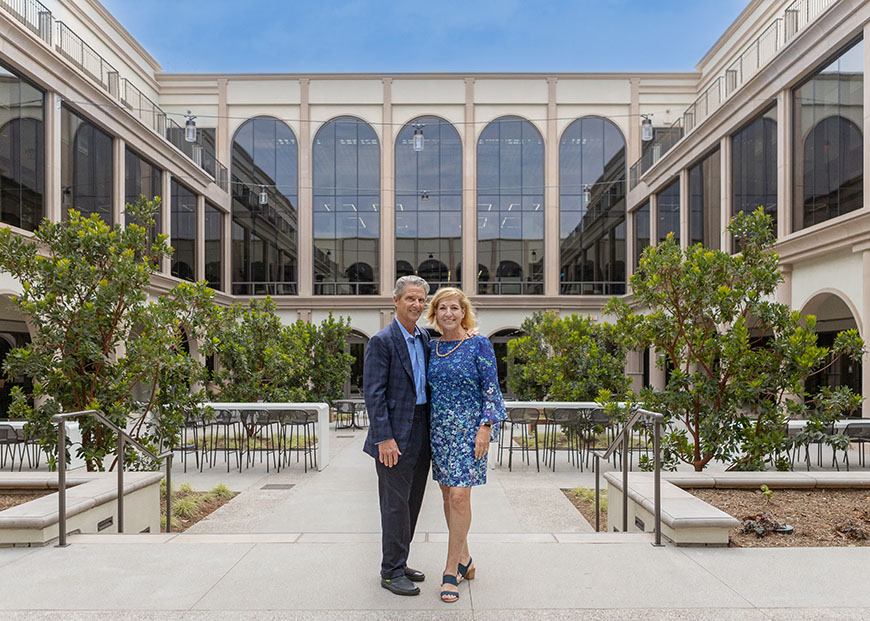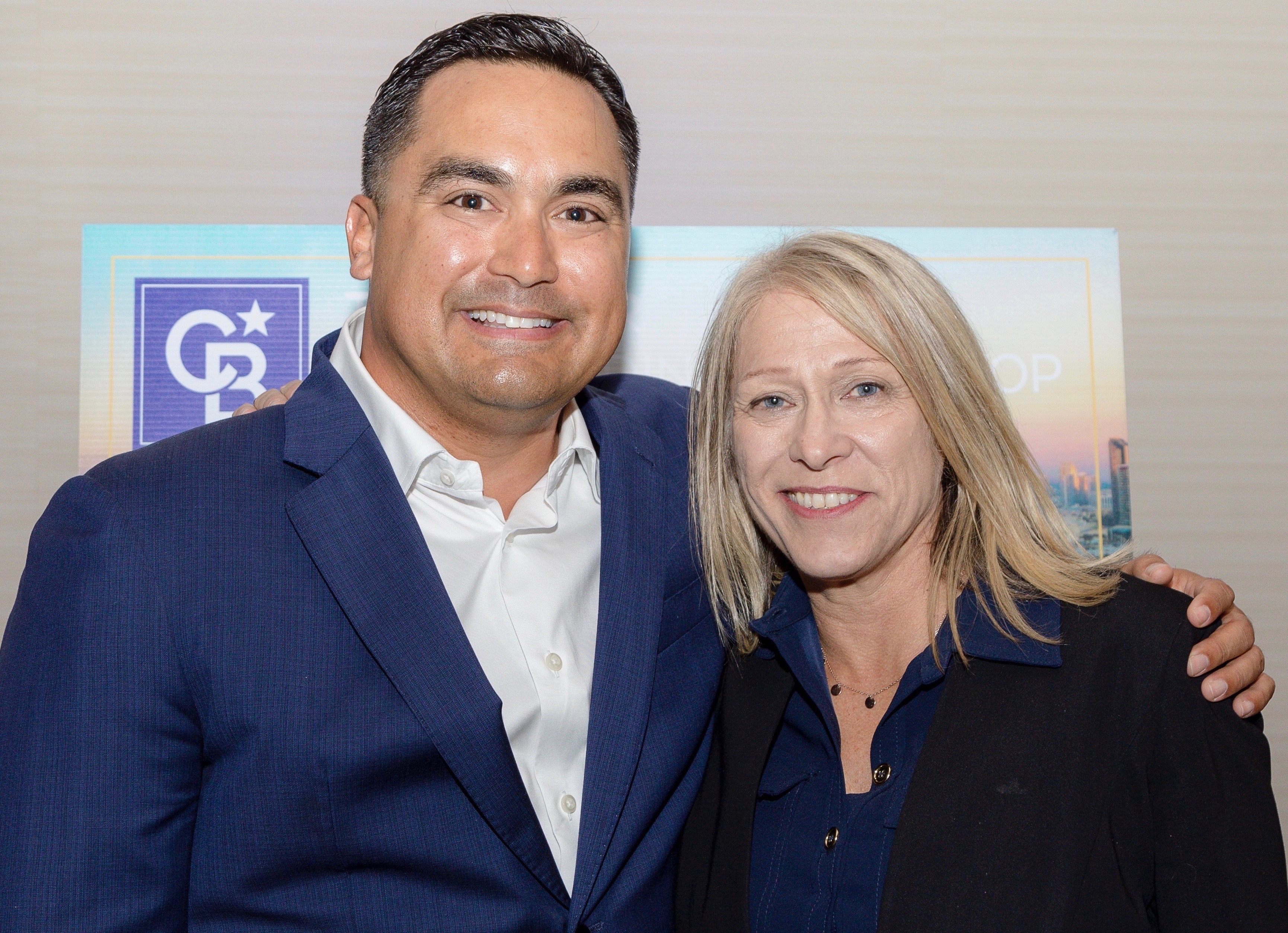Daily Business Report: Tuesday, Oct. 4, 2022
San Diego’s downtown apartment construction
over past decade among highest in the nation
Every major city around the county has been working towards revamping its urban core to house more residents, but few have done it better than San Diego. According to research by StorageCafe on the fastest-growing downtown apartment markets in the 100 largest cities in the U.S., San Diego’s downtown area has had the 13th most impressive transformation of the decade.
Some key highlights that brought San Diego’s city center to the top:
• In response to growing demand, San Diego added almost 8,700 new apartments built from 2013 to today, increasing its downtown apartment inventory by 52 percent.
• While office workers aren’t yet returning in droves, people still seem interested in living in downtown San Diego, which has another 2,312 new apartments currently under construction with completion dates spanning approx. two years.
• The best year for downtown apartment construction was 2019, when almost 2,200 new apartments were added to the local inventory.
According to StorageCafe, Atlanta topped the list of the top 20 most active downtown areas for apartment construction between 2013 and 2022, with 21,508 units. Los Angeles was second, with 19,342 units. San Diego was 13th on the list with 8,696 apartment units.
Click here for the StorageCafe report and the top 20 list.
Chula Vista, a college town? The decades-old dream
of attracting a university may be gaining ground
Union-Tribune
For nearly 40 years, Chula Vista has been lobbying to attract a full-service university, a prize civic leaders say could transform their quiet city near the border into a hotspot in education and business. Perhaps a school similar to San Diego State University. Or a private institution with impeccable credentials.
Everyone from the mayor to home builders believes students in South County would jump at the chance to study locally rather than commuting to crowded campuses to the north. And the school would be a magnet for job-rich tech companies, something the city largely doesn’t have. Chula Vista also wants to emerge from the shadow of San Diego and become as well known as California’s other large cities, rather than being perceived as a swath of suburbia.
University of San Diego celebrates grand opening
of Knauss Center for Business Education
The University of San Diego is celebrating the grand opening of the Knauss Center for Business Education, one of the most innovative buildings in business higher education and home to the newly named Knauss School of Business.
University of San Diego Board Chairman Don Knauss, the former CEO of Clorox, and his wife, Ellie, donated $50 million to fund construction of the new 120,000-square-foot facility and also to name the Knauss School of Business.
Each space within the Knauss Center for Business Education is designed to create an ecosystem for innovation and collaboration that empowers students and inspires groundbreaking ideas that not only will serve the greater San Diegoregion, but will also inspire innovative changemakers to confront humanity’s most urgent challenges.
The Knauss School of Business is also devoted to helping local, national and international businesses. More than $190 million has been invested in growing new businesses through the Knauss School of Business’ San Diego Angel Conference. The Brink Small Business Development Center has provided free consulting services to help more than 1,400 local small businesses.
Viasat to sell its Link 16 Tactical Data Links
business to L3Harris for $1.96 billion
Carlsbad-based Viasat a global leader in satellite communications, announced it has entered into a definitive agreement to sell its Link 16 Tactical Data Links (TDL) business to L3Harris Technologies for $1.96 billion. The sale is expected to result in cash proceeds to Viasat of $1.8 billion net after estimated taxes, fees, and other expenses.
Viasat’s Link 16 Tactical Data Link business is part of its Government Systems segment. Over the past 25 years, the business has grown to be a leading provider of Link 16 TDL products and solutions. The sale of the business includes the Multifunctional Information Distribution System (MIDS) platforms and associated next-generation Link 16 terminals and handheld radios, as well as the Link 16 to space business.
“This transaction will transform our balance sheet, reduce cash interest obligations, and sharpen strategic focus while enabling continued growth opportunities for the Link 16 business and assuring our customers of a competitive, innovative and reliable source for their future needs. The Link 16 Tactical Data Links business has been an important contributor to Viasat’s growth and earnings and the transaction recognizes the value created by our outstanding team.”said Mark Dankberg, CEO and chairman of the board, Viasat.
The Link 16 TDL business had approximately $400 million of revenue for the 12 months ended June 30, 2022.
Scripps Research awarded $67 million to
lead pandemic preparedness center
The National Institute of Allergy and Infectious Diseases (NIAID), part of the National Institutes of Health (NIH), is sponsoring a major new antiviral drug development center that will be led by Scripps Research. The center received an award in the amount of $67 million over three years, with potential renewal for two additional years, and will be known as the Center for Antiviral Medicines and Pandemic Preparedness (CAMPP). It will be one of nine NIAID-sponsored Antiviral Drug Discovery (AViDD) Centers for Pathogens of Pandemic Concern.
“The next global pandemic is a matter of ‘when’, not ‘if’, and with CAMPP we have a unique opportunity to prepare for that event,” says project co-lead investigator Sumit Chanda, professor in the Department of Immunology and Microbiology at Scripps Research.
The AViDD Centers program is one of the U.S. government’s responses to the COVID-19 pandemic and is aimed at the near-term development of drugs against viruses with high pandemic potential—including coronaviruses, filoviruses (such as Ebola virus), flaviviruses (yellow fever virus, dengue virus, Zika virus), paramyxoviruses, bunyaviruses, and togaviruses.
Rady School of Management and Scripps Oceanography
announce second cohort for blue economy accelerator
University of California San Diego’s Rady School of Management and Scripps Institution of Oceanography have selected the second cohort for the StartBlue program, an accelerator for startups dedicated to tackling ocean-focused challenges and solutions. The announcement builds on the success of the inaugural StartBlue cohort and contributes to the region’s growing blue economy.
“There’s a lot of innovation and excitement in San Diego’s blue economy,” said Vanessa Scott, director of corporate affiliates, business development, industry outreach, and innovation at UC San Diego’s Scripps Oceanography and director of the StartBlue Accelerator. “With Rady School’s expertise in launching startups and supporting the business community, Scripps Oceanography’s proven leadership and expertise in blue technology and participation from regional blue economy leaders, the StartBlue Accelerator exemplifies what UC San Diego offers in terms of innovative, interdisciplinary business solutions. After seeing everything our first cohort has accomplished, the opportunities available for our second cohort are remarkable.”
The StartBlue program supports science and engineering startups in the rapidly growing and highly vital blue tech sector, devising new solutions that can be integrated into science, industry, investment and government networks.
Scientists, designers study museum visitor behavior
Clay vessels of innumerable shapes and sizes come to life as they illuminate a rich history of symbolic meanings and identity. Some museum visitors may lean in to get a better view, while others converse with their friends over the rich hues. Exhibition designers have long wondered how the human brain senses, perceives, and learns in the rich environment of a museum gallery.
In a synthesis of science and art, Salk scientists have teamed up with curators and design experts at the Los Angeles County Museum of Art (LACMA) to study how nearly 100,000 museum visitors respond to exhibition design. The goal of the project, funded by a $900,000 grant from the National Science Foundation, is to better understand how people perceive, make choices in, interact with, and learn from a complex environment, and to further enhance the educational mission of museums through evidence-based design strategies.
The Salk team is led by Professor Thomas Albright, Salk Fellow Talmo Pereira, and Staff Scientist Sergei Gepshtein.
Prometheus Biosciences receives
FDA clearance for clinical trial
Prometheus Biosciences, Inc. , a clinical-stage biotechnology company in San Diego, announced the U.S. Food and Drug Administration (FDA) cleared the company to proceed with a clinical trial under its Investigational New Drug Application (IND) for PRA052 in ulcerative colitis. Initiation of a Phase 1 SAD/MAD study for PRA052 in normal healthy volunteers is expected to commence in the fourth quarter of this year.
PRA052 is a first-in-class monoclonal antibody blocking CD30 ligand with ulcerative colitis as the initial indication. CD30L is a costimulatory molecule that has been implicated in inflammatory bowel disease (IBD) by genetic, preclinical, and human translational data. The broad role of the CD30L pathway in immune-mediated disease makes PRA052 a compelling candidate for a variety of diseases beyond IBD. For more information on CD30L and Prometheus’ PRA052 program, view the R&D Day webcast here.
Kyndryl and Teradata partner to help customers use AI
Kyndryl, the world’s largest IT infrastructure services provider, and Teradata, the connected multi-cloud data platform for enterprise analytics company, announced a strategic global partnership to help customers apply artificial intelligence (AI) and data modernization techniques across their environments to accelerate business outcomes and speed time-to-value. The companies are uniting Kyndryl’s Data and AI services and infrastructure management capabilities with Teradata’s high performance cloud analytics and data platform to help customers modernize and migrate their on-prem data warehouses to the cloud with hyperscaler platforms.
Kyndryl and Teradata will also collaborate to help customers use AI to derive better insights and outcomes from their hybrid and multi-cloud data environments by designing, enabling and supporting enterprise data modernization solutions.
Toragen Inc. raises $5 million in Series Seed round
Toragen Inc., a San Diego-based biotechnology company focused on developing, repurposing and commercializing uniquely selective drugs targeting cancers caused by the human papillomavirus (“HPV”), announced that it has reached its initial goal to raise at least $5 million in a Series Seed round of financing. The Series Seed round closed Sept. 30, 2022. It is led by Paul Engler of Amarillo, Texas.
The majority of the proceeds from the Series Seed round will be used for research and development purposes. Cheryl Collett, Toragen’s CFO, said, “we will deploy the proceeds from the round for our Phase I clinical trial with our lead drug candidate, to advance our pre-clinical work on our next generation compounds, for payroll for the research, development and management teams as well as general corporate overhead.”
To stop viruses, SDSU researchers
figure out how they’re built
Without a multi-page instruction manual or a commanding Captain America, how do viruses assemble hundreds of individual pieces into elaborate structures capable of spreading disease? Solving the secret of self-assembly can pave the way for engineering advancements like molecules and robots that put themselves together. It could also contribute to more efficient packaging, automated delivery and targeted design of medicine in the fight against viruses that cause colds, diarrhea, liver cancer and polio.
“If we understand the physical rules of how viruses assemble, then we can try to make them form incorrect structures to hinder their spread,” said Rees Garmann, a chemist at San Diego State University and lead author of a new paper that fills in a piece of the puzzle.
Garmann, along with two SDSU graduate students and collaborators at Harvard and UCLA, concluded that two distantly related RNA viruses — one that infects bacteria and one that infects plants — perform this chemical choreography in strikingly similar ways.
UC San Diego Health recognized
by Vizient as 2022 top performer
UC San Diego Health has been recognized as a top performer in the 2022 Bernard A. Birnbaum, MD, Quality Leadership Ranking by Vizient Inc. UC San Diego Health is one of a few members in the “Comprehensive Academic Medical Center” cohort to be recognized for excellence in delivering high-quality care. This achievement represents the fourth consecutive year that UC San Diego Health has been ranked among the top ten academic health systems in the United States.
The Vizient Quality and Accountability Ranking helps participating hospitals and health systems understand their performance compared to their peers and identifies structures and processes associated with high performance in quality and safety across a broad spectrum of patient care activity. The recognition period is for work spanning July 1, 2021 through June 30, 2022.





